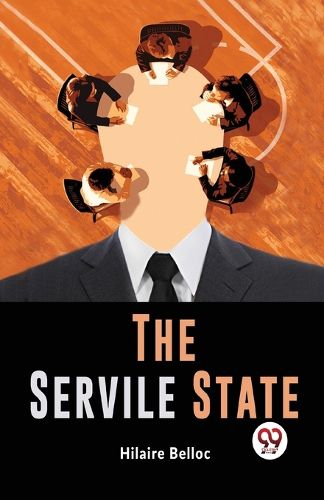Readings Newsletter
Become a Readings Member to make your shopping experience even easier.
Sign in or sign up for free!
You’re not far away from qualifying for FREE standard shipping within Australia
You’ve qualified for FREE standard shipping within Australia
The cart is loading…






This title is printed to order. This book may have been self-published. If so, we cannot guarantee the quality of the content. In the main most books will have gone through the editing process however some may not. We therefore suggest that you be aware of this before ordering this book. If in doubt check either the author or publisher’s details as we are unable to accept any returns unless they are faulty. Please contact us if you have any questions.
Hilaire Belloc makes the case in his book "The Servile State" that capitalism leads to a new kind of slavery in which people are reliant on their employers and establishes a "servile" state. Belloc advocated for a "distributist" system that would broadly share ownership and management of the means of production among the populace in order to foster more economic stability, social cohesion, and individual liberty and dignity. Belloc condemned capitalism for putting most of the population in a state of slavery by concentrating money and property ownership in the hands of a tiny number of people. Belloc thought that the distributist system would result in a society that was more fair and equal, with more people owning their own property and having more influence over their own financial futures. In his view, doing so would foster better social stability, individual liberty, and dignity, eventually resulting in a society that was more peaceful and successful. A criticism of the social and economic effects of capitalism, "The Servile State" suggests a different economic structure based on better distributive fairness and equality. The book has influenced economic and political philosophy throughout history and has served as an inspiration for current movements that call for greater economic democracy and social fairness.
$9.00 standard shipping within Australia
FREE standard shipping within Australia for orders over $100.00
Express & International shipping calculated at checkout
This title is printed to order. This book may have been self-published. If so, we cannot guarantee the quality of the content. In the main most books will have gone through the editing process however some may not. We therefore suggest that you be aware of this before ordering this book. If in doubt check either the author or publisher’s details as we are unable to accept any returns unless they are faulty. Please contact us if you have any questions.
Hilaire Belloc makes the case in his book "The Servile State" that capitalism leads to a new kind of slavery in which people are reliant on their employers and establishes a "servile" state. Belloc advocated for a "distributist" system that would broadly share ownership and management of the means of production among the populace in order to foster more economic stability, social cohesion, and individual liberty and dignity. Belloc condemned capitalism for putting most of the population in a state of slavery by concentrating money and property ownership in the hands of a tiny number of people. Belloc thought that the distributist system would result in a society that was more fair and equal, with more people owning their own property and having more influence over their own financial futures. In his view, doing so would foster better social stability, individual liberty, and dignity, eventually resulting in a society that was more peaceful and successful. A criticism of the social and economic effects of capitalism, "The Servile State" suggests a different economic structure based on better distributive fairness and equality. The book has influenced economic and political philosophy throughout history and has served as an inspiration for current movements that call for greater economic democracy and social fairness.